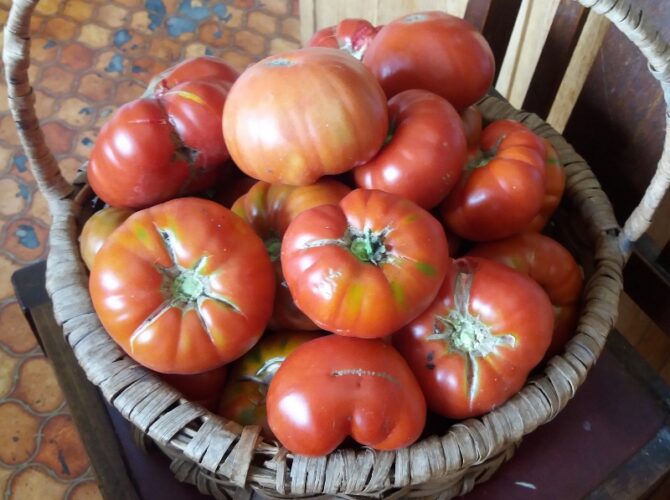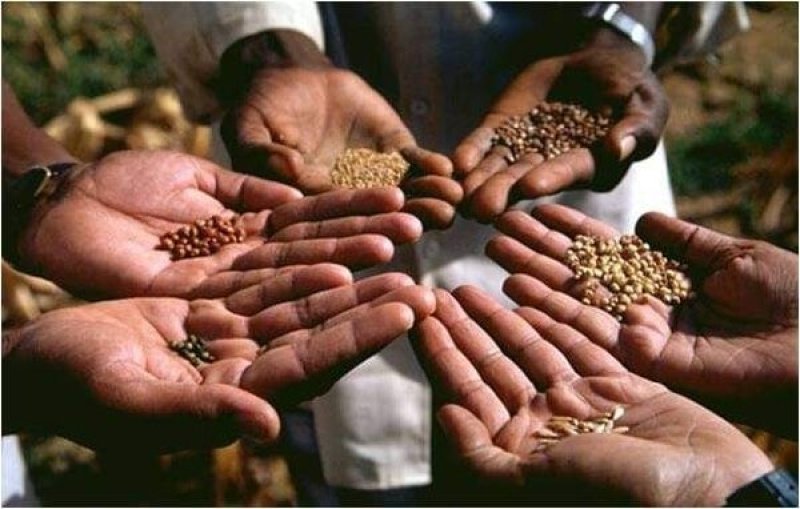Heirloom, open pollenated, hybrid and GMO are all different types of seeds. These are terms that describe different strains of plant, and which can prove confusing for a layman.
And, although they actually refer to plants themselves, they are more relevant when sourcing seeds, bulbs or corms.
Heirloom seeds
Heirloom and open pollenated describe the same thing, that is, an original strain of a species. Some might refer to these as “old fashioned” and many believe that heirloom varieties, when applied to vegetables, taste better. They don’t mind that they may be more difficult to grow and may yield less than modern varieties. They may also produce oddly shaped and inconsistently sized fruits and tubers.

These are the species that are most suitable for seed saving from year to year because they will consistently grow true to type season after season.
Hybrid seeds
Hybrids are the result of careful cross-pollination of different heirloom strains, to produce a plant that exhibits certain desired characteristics.
Take tomatoes as an example. Heirloom varieties may pack plenty of flavour but the high liquid content of the fruit, and the inconsistent shapes and sizes, make them unsuitable for canning. So botanists crossed and recrossed varieties. They bred a plant that formed consistently-shaped, almost oblong fruits, with a very high pulp content and relatively dry interior. Thus, a perfect variety for canning.
School life sciences curricula still teach another good example of the process of cross-breeding: Mendel’s pea experiments.
Most hybrids are referred to as F1 hybrids, which means that they are the first generation result of the cross-breeding programme. If botanists were to take two F1 hybrids and cross-breed again, the result would be an F2 hybrid.
One of the problems with hybrids is that they are sometimes sterile. This means that they do not themselves produce viable seed, or their seed may not grow true to type. They may also start to revert to the characteristics of the parent plants.
Hybrids are thus less suitable for seed saving and seedsmen recommend one to buy fresh seed each season as a result.
GMO seeds
Genetic modification, or GM (the O of GMO stands for organism) is a process by which scientists manipulate certain genes within the plant’s DNA to produce certain desired characteristics. These range from drought resistance, improved yield etc, through to resistance to certain pesticides. You may have seen commercial seed described as “Roundup-ready”. That means that the plant has been genetically modified so that it is resistant to herbicides containing glyphosate, a very effective but highly toxic weed killer.

GM seed is widely used in a variety of crops in South Africa, maize being the biggest. It is estimated that up to 80% of commercially-grown maize in South Africa is genetically modified. However, many countries now prohibit the use of such seed.
A disadvantage of GM species is that their seed is sterile. This means that growers cannot save some of their seed from year to year, but need to buy fresh seed each season. And because the costs of developing successful GM strains and producing commercial quantities of seed are so high, the cost of GM seed is relatively high.
Plus, only a handful of large, highly-resourced companies worldwide have the wherewithal to undertake GM production. This means that very few companies control worldwide commercial agriculture of certain crops (of which maize is one). This is a situation which is deemed economically and politically hazardous by those who see the potential for disruption and even manipulation of markets for GM crops.
This is part five of a series of articles on seeds and plant nutrition. For more, click here.

